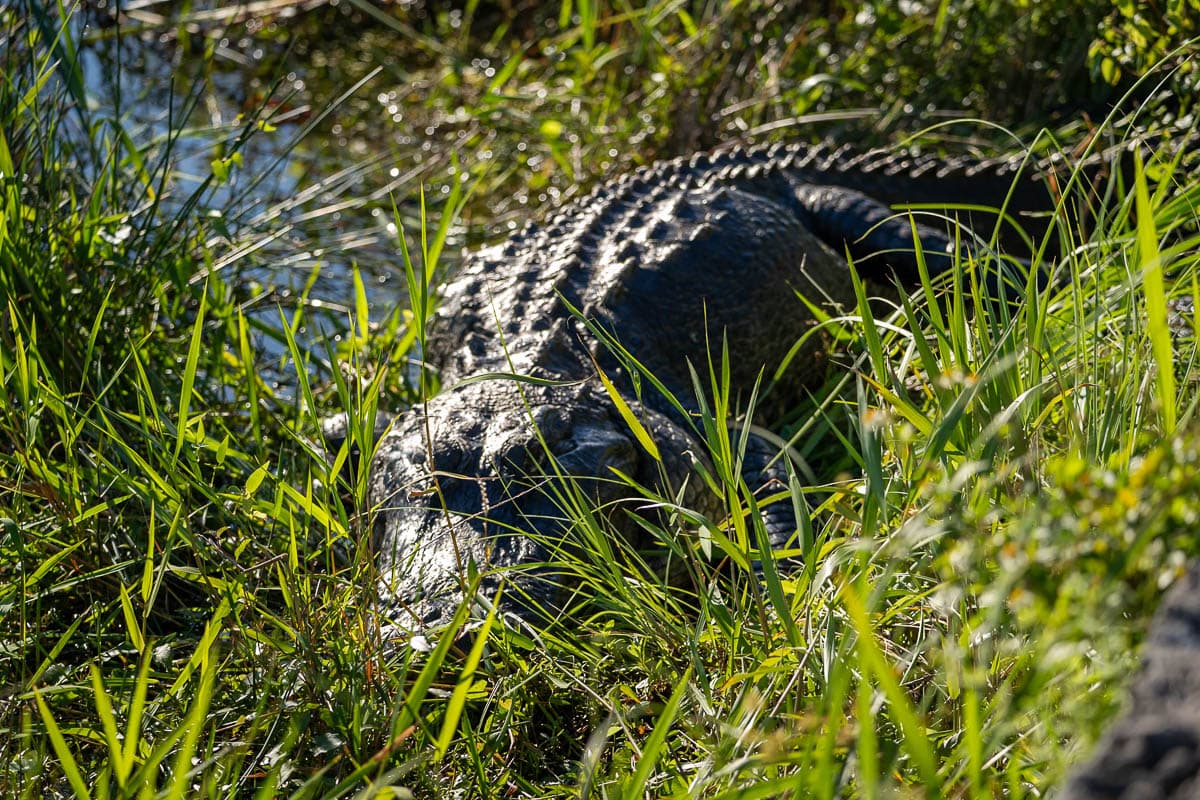The Anhinga Trail is the most popular hike in Everglades National Park—and for good reason! Along this short and easy trail through a lush sawgrass prairie, you have an excellent chance of seeing the wildlife that the Everglades is so famous for, including wading birds, turtles, and, of course, alligators! So if you want to experience some of Florida’s wildlife for yourself, here’s everything you need to know about the Anhinga Trail in Everglades National Park.
This post may contain affiliate links. If you make a purchase through them, we may receive a small commission, for which we are extremely grateful, at no extra cost to you.
About the Anhinga Trail
- Length: 0.8 miles
- Elevation gain: 0 feet
- Difficulty: Easy
- Dog-friendly? No, like most national parks, you’ll need to leave the pups at home for this one.
- Wheelchair-accessible? Yes. In fact, the Anhinga trail was named “One of the 10 Best Accessible Trails” by National Geographic!
- Trail map
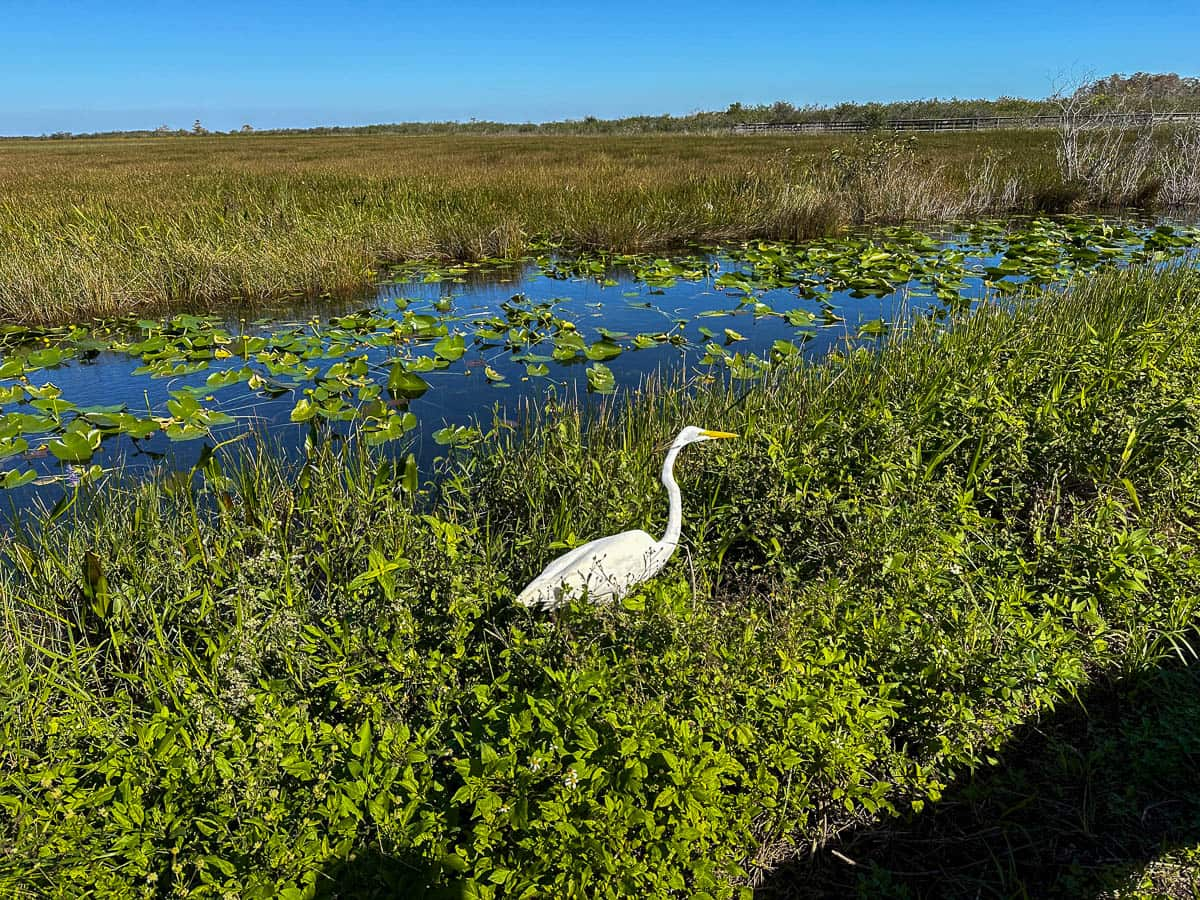
How to get to the Anhinga Trail
Everglades National Park is HUGE, covering 7,800 square miles at the southern tip of Florida.
The Anhinga Trail is located here on the eastern side of the park, right outside of the Royal Palm Visitor Center. It’s located about half an hour southwest of the small town of Homestead, which is largely considered to be the gateway to the Everglades, or an hour and 15 minutes southwest of Miami.
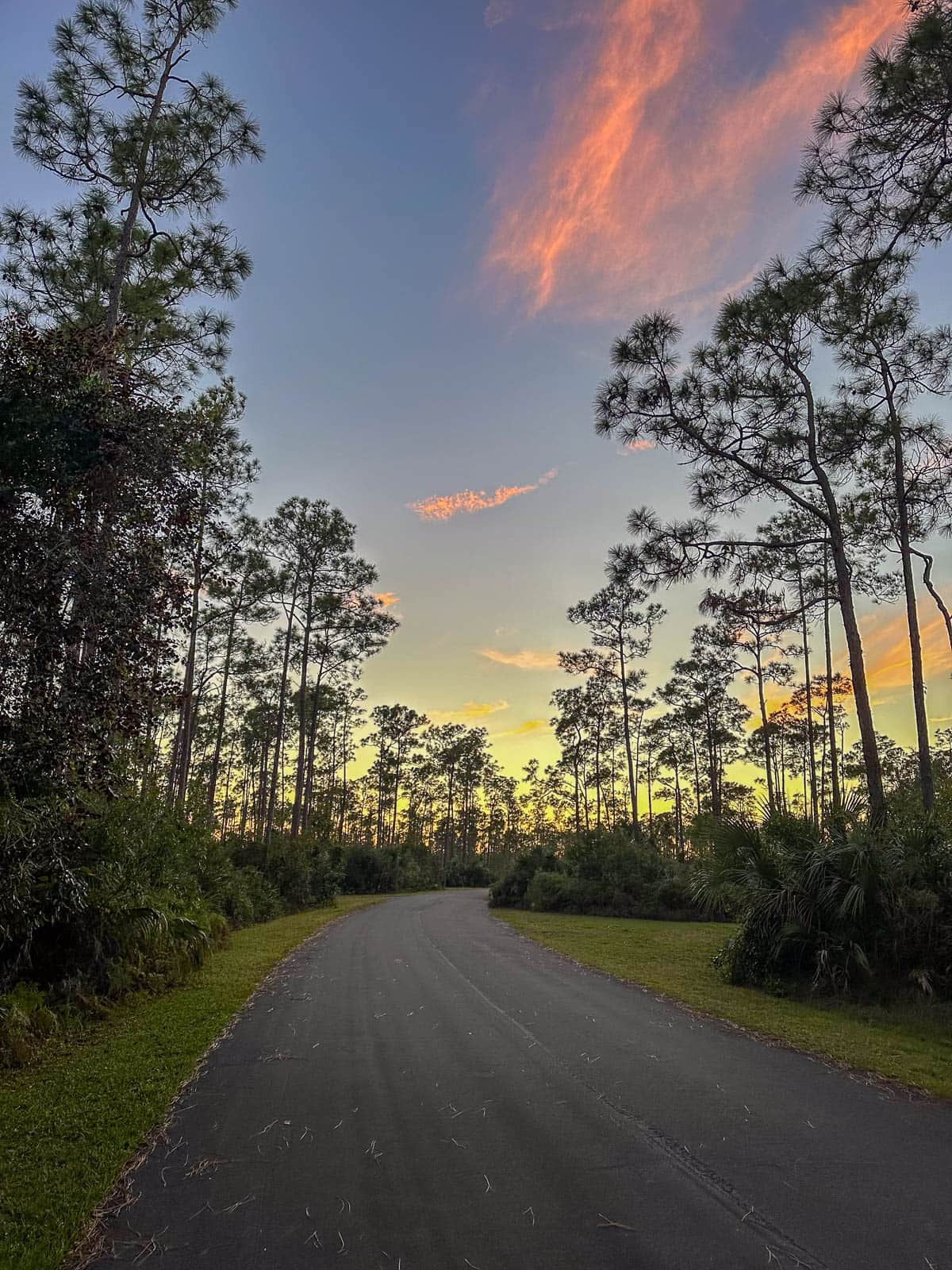
To get to the Anhinga trailhead, you’ll pass through the Homestead Entrance Station. There’s a $35 per private vehicle entrance fee per week or, alternatively, you can pick up an America the Beautiful Pass for $80, which gets you into all of the U.S. National Parks and over 2,000 federally managed sites for an entire year for free!
The parking lot for the Royal Palm Visitor Center easily holds over 100 cars, so, regardless of what time you show up, you should be able to find a parking space!
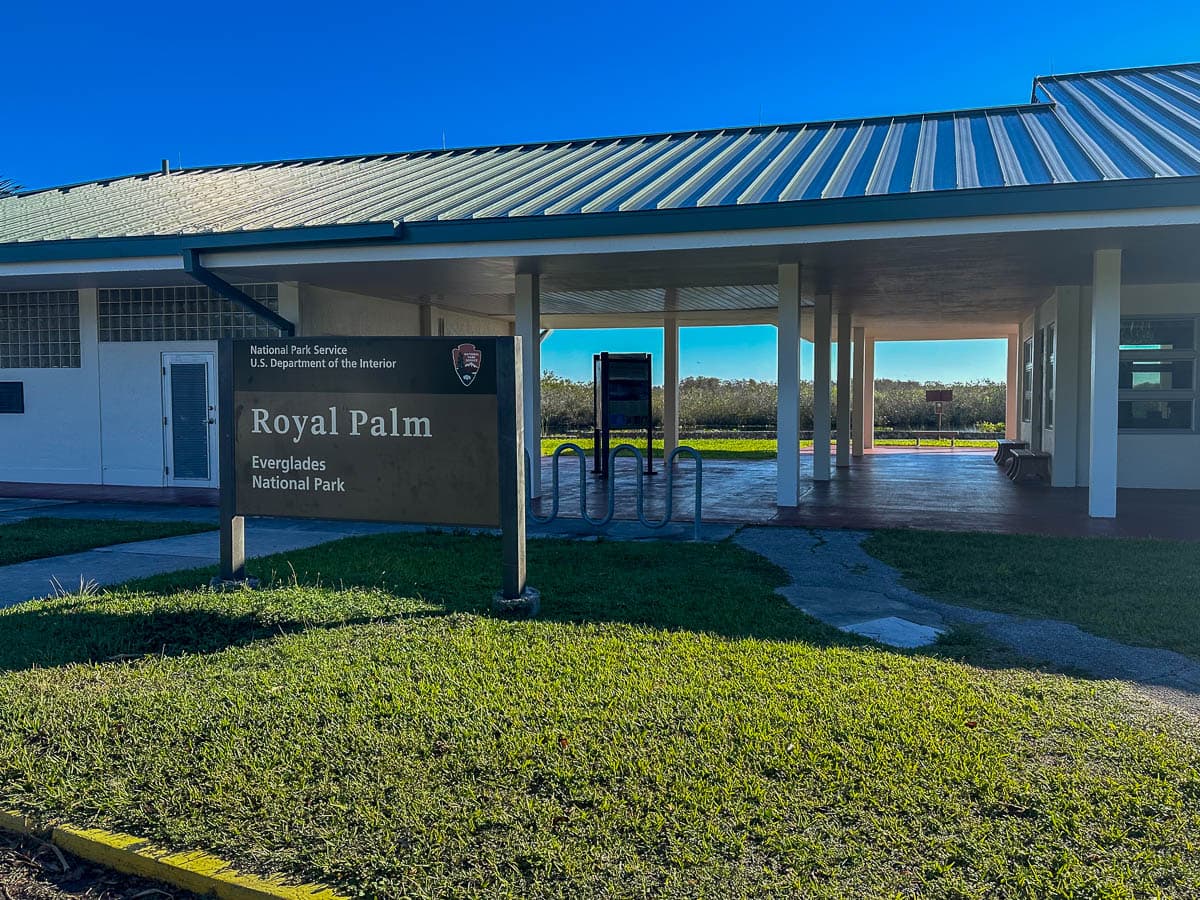
Insider tip: While we didn’t experience this problem, we’ve read reviews on AllTrails that this area has a high and aggressive population of black vultures, who like to pick out the black rubber seals on the windshields and sun roofs on passenger vehicles.
The visitor center actually provides tarps and bungee cords to throw over your car while you’re off exploring the Anhinga Trail so you can enjoy it, without worrying about your car getting damaged!
What to Expect Along the Anhinga Trail
The Anhinga Trail is short and sweet, following a paved pathway from the Visitor Center that skirts around the southern shore of a pond of the Taylor Slough.
This is one of the only waterways in the Royal Palm section of the park that retains water year round, even when the Everglades is experiencing a drought. Its water is full of lily pads and is an awesome place to see wildlife—during our time here, we saw a couple of alligators, turtles, and TONS of birds, including the trail’s namesake, anhingas, and white ibises.
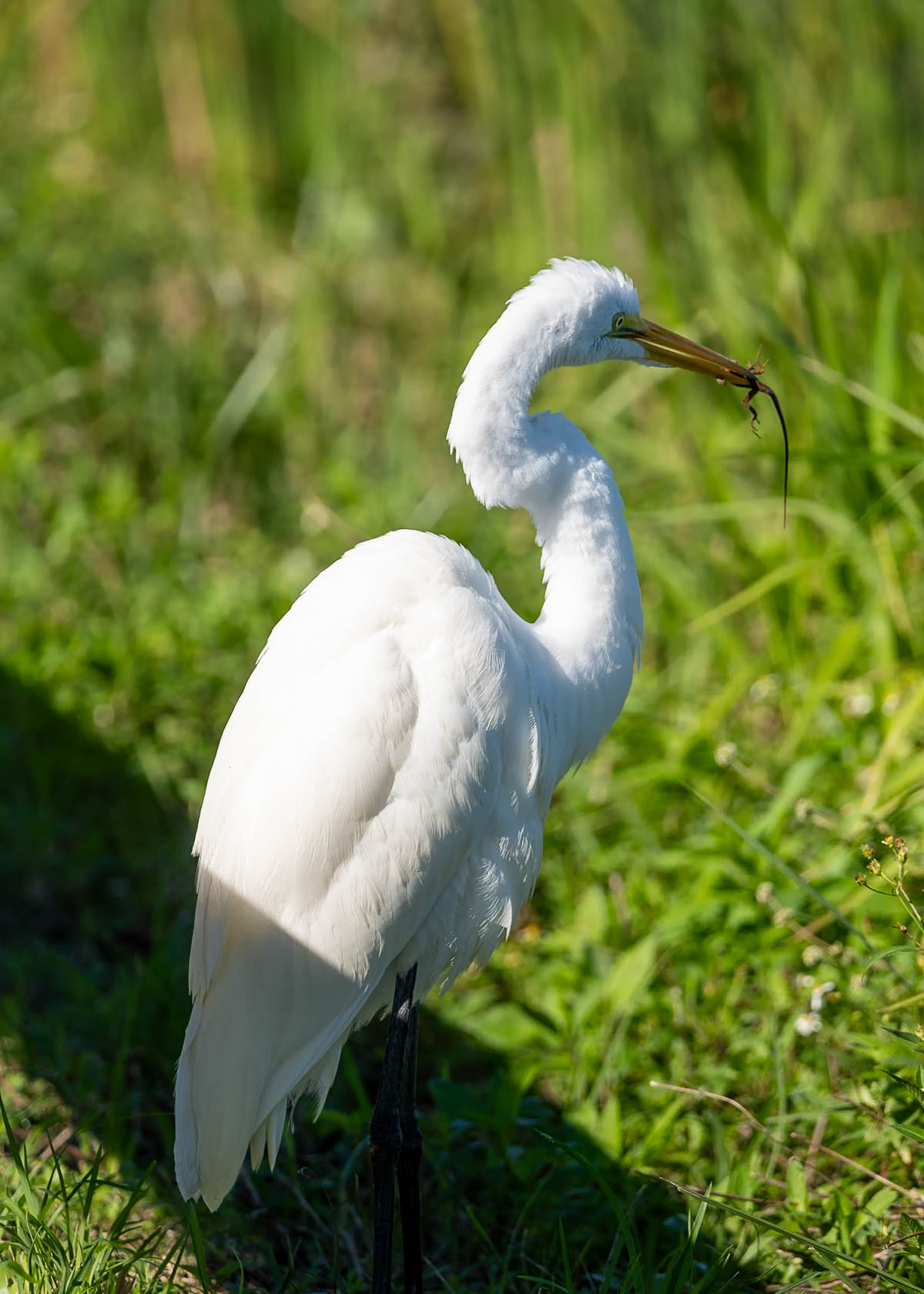
About 0.2 miles into the trail, you’ll turn left on a wooden boardwalk that loops directly over the slough. It’s really cool to get a birds’ eye view of the water below—we actually saw an alligator slowly slither RIGHT below our feet! There’s also a short spur trail along the boardwalk to a wooden observation deck that allows you to get a different perspective over the sawgrass prairie.
The wooden boardwalk over the slough is about 0.3 miles long and eventually returns you to the paved pathway.
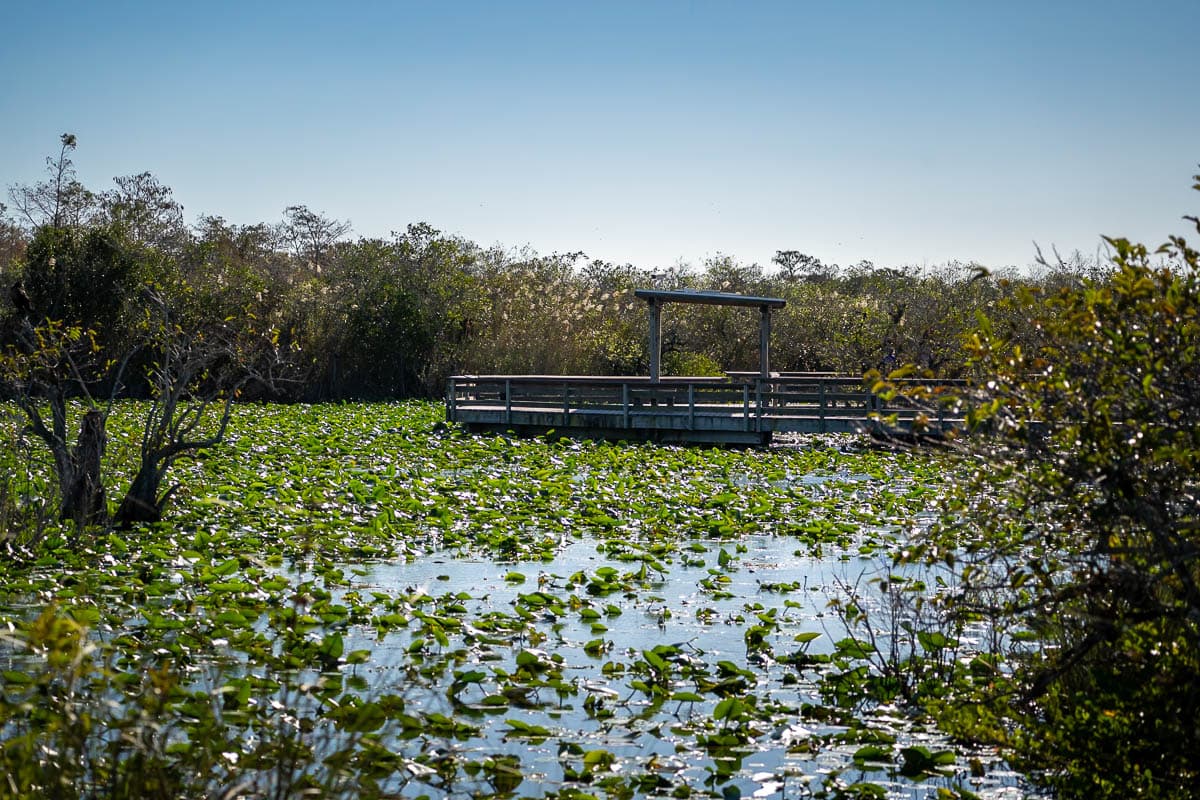
To your left, there’s a wooden observation deck that provides yet another view over the marsh. During our visit, this was an AWESOME spot to see alligators—we saw three here! Otherwise, you can simply follow the paved trail back to the Visitor Center.
Insider tip: If you're looking for something that's a little bit more challenging than this trail but still want to see a lot of wildlife, I'd suggest checking out the Shark Valley bike trail in the park. You can rent bikes to ride along this 15-mile pathway, which happens to be an AWESOME spot to see alligators and all kinds of wading birds. We saw DOZENS of alligators here!
When to visit the Anhinga Trail
The best time to visit the Everglades National Park, in general, is December through April. During this timeframe, the skies are clear, the temperatures are cooler, and you’ll generally see a lot more alligators and birds. The spring months, especially, April, can be an excellent time to see nesting birds, including the roseate spoonbill (which looks delightfully similar to a flamingo!).
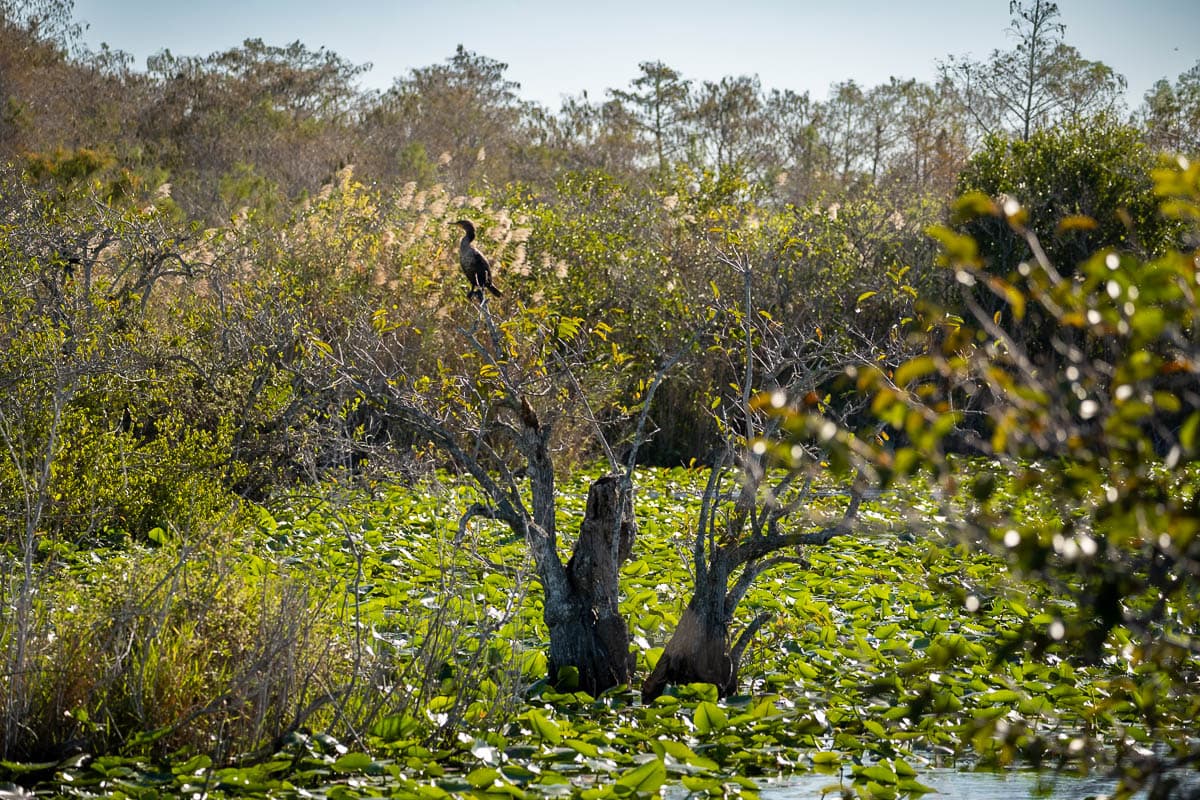
From May through November, it’s typically much rainier, SO buggy, and extremely hot in the park (as in, a heat index that’s regularly over 100 degrees!).
Additionally, this generally isn’t the best time to see wildlife in the Everglades—in fact, it’s often so hot that alligators will bury themselves in mud holes to keep themselves cool! If you do visit during this time period, there’s no shade along the trail, so I’d recommend getting an early start to beat the heat. Additionally, be sure to pack plenty of water; sun protection, like sunscreen, sunglasses, and a hat; and bug spray.
Tips for the Anhinga Trail
Join a ranger-guided tour
One of the coolest things to do in Everglades National Park is to enjoy its many ranger-guided program, including the daily ones that are provided along the Anhinga Trail!
The programming and times vary with the season, so be sure to check the National Park Service website before your visit.
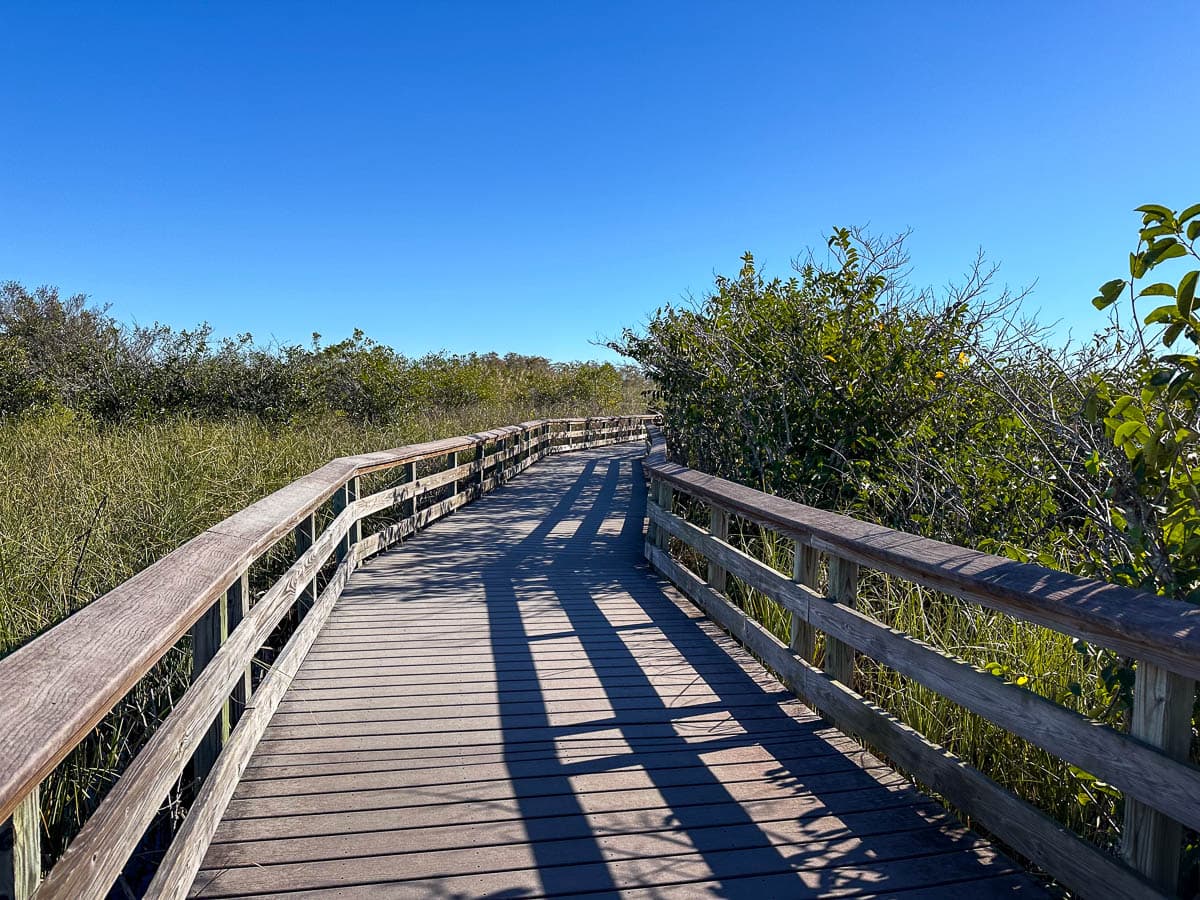
After we hiked around the Anhinga Trail, we actually did it again on a ranger-guided tour and learned SO much about the plants and animals that call this special place home!
Don’t get too close to the alligators
In a perfect world, I wouldn’t need to say this, but I saw SO many people getting within inches of alligators during our time in the Everglades!
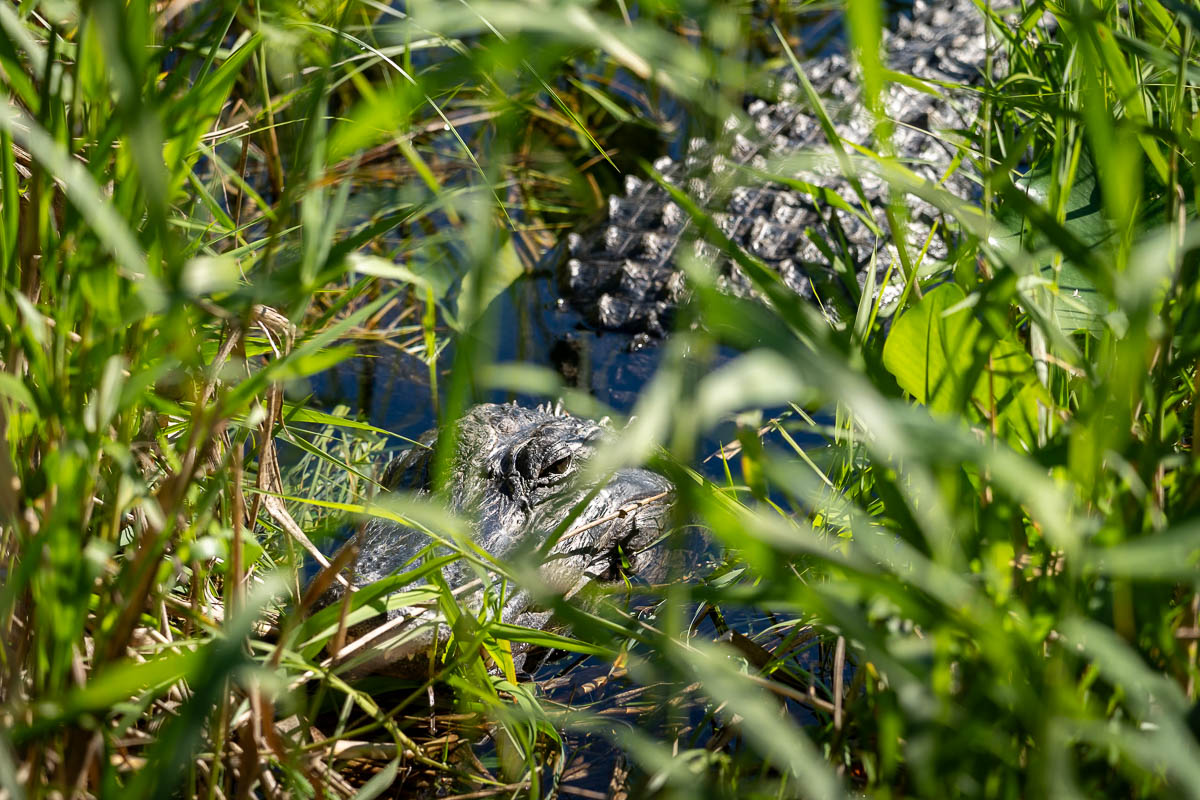
Alligators are typically not aggressive towards humans, but may act aggressively if they feel threatened (say… like if you get too close to them) or if they mistake us for their prey, which is much more likely to happen with little kids and pets. Accordingly, please be sure to stay 15 feet away from the gators at all times and keep a close eye on any little kids that are enjoying the trail with you.
Consider adding on the Gumbo Limbo Trail
If you’re up for a bit more of a walk, there’s another short and paved trail that leaves from the Royal Palm Visitor Center, called the Gumbo Limbo Trail for the species of trees, with red and green bark, that you’ll find along the trail. This 0.5 mile flat pathway takes you through a tropical hammock that provides one thing that the Anhinga Trail does not—shade!
It’s also unfortunately infamous for being quite a bit buggier than the Anhinga Trail, so I’d suggest steering clear of this one unless you come armed with bug spray!
The Anhinga Trail was one of our favorite hikes in Everglades National Park and I hope you love it as much as we did! Do you have any question about this trail? Let us know in the comments below!

